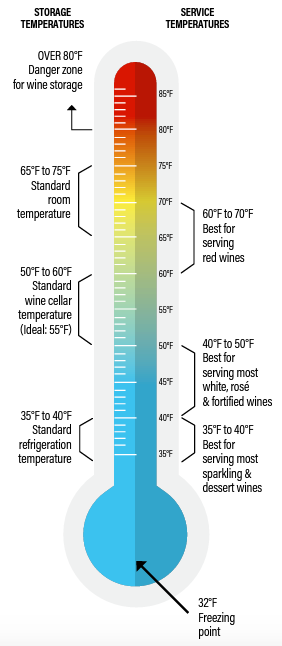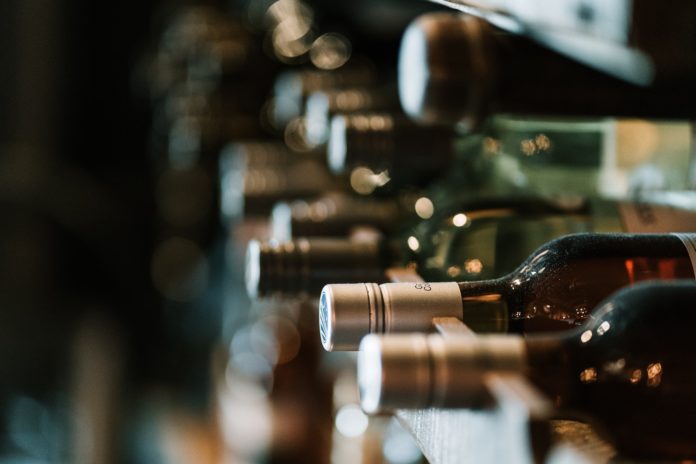Temperature is an important factor for both the service and storage of wine.
Not only is wine a perishable product that needs to be kept cool to avoid spoliage, but it also tastes differently when chilled or warmed. Our experience of wine’s flavor is dominated by aromatic compounds that are volatile and vaporize at different temperatures, plus others that can alter perceived mouthfeel as well, like tannins.
If you try the same wine from two glasses side by side — one at room temperature and one at refrigerator temperature — the cooler glass will seem less intensely flavorful, but also more refreshing. The wine in the warmer glass will seem bolder in flavor, and may offer a wider range of scents. On the palate, it will seem less refined and boozier. If the wine features tannins from either grape skins or new oak, these will seem more harshly bitter and astringent in the colder glass, and more pleasantly plush in the warmer one.

Most wine is stored and served at either room or refrigerator temperature, because these are the easy-access temps that already exist in modern households. However, neither is ideal for wine. Most wines keep and taste best somewhere in between; a little cooler than the room for reds, and a little warmer than the fridge for everything else.
As for long-term storage, longer than a couple months, the ideal temperature for allowing wine to age gracefully is 55°F, known as “cellar temperature.” This is the stable year-round temperature found in any natural basement deep enough to escape seasonal swings — hence its well-developed track record. Nowadays, few have access to natural underground storage, so those who wish to keep wine at cellar temperature can invest in appliances, or install cellars that refrigerate to a perfect 55°F.
There is No Perfect Temp
Recommended temp ranges for serving wines are shown on the right. However, within any given category, those wines highest in alcohol tend to taste better a little warmer, while those with lower alcohol often show best with more of a chill. Try putting red wines in the fridge for 5-15 minutes before pouring, and do the reverse for other styles: taking them out of the fridge to warm briefly. Only sparkling and sweet wines taste their best straight from the refrigerator.
Formerly the director of wine studies for Manhattan’s French Culinary Institute, Marnie Old is best known for her books published by DK: the award-winning Wine: A Tasting Course and He Said Beer, She Said Wine. Read her piece The Trick to Understanding Sparkling Wine Labels.





[…] Read Full Story at source (may require registration) Author: Marnie Old […]